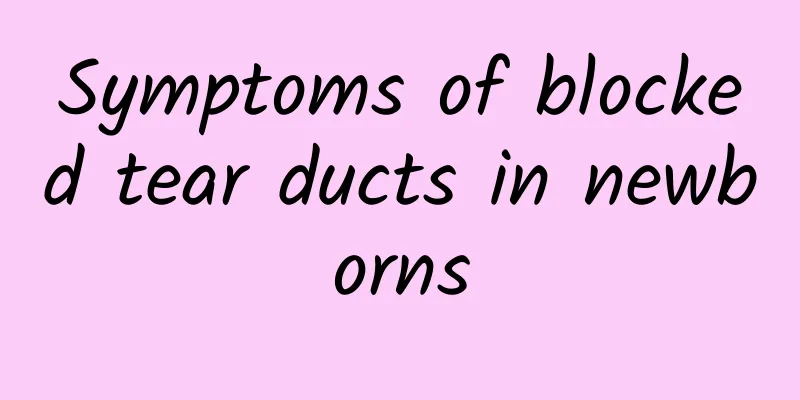What is the best medicine for pyelitis?

|
Pyelonephritis is a disease that can occur at any age. In general, the disease is acute and the severity of the disease varies. When the disease is serious, it may develop into sepsis. Therefore, when the patient has fever, chills, nausea and vomiting, he should go to the hospital for examination and treatment in time to avoid missing the best time for treatment. Acute pyelonephritis will turn into chronic disease if it is not cured for more than 6 months, so it should be treated thoroughly at an early stage. Due to repeated attacks of chronic pyelonephritis, the inflammation and repair processes in the kidneys alternate, connective tissue proliferates and scars form, resulting in poor local blood circulation and difficulty for antibiotics to enter the lesions. Local drainage is poor and pathogenic bacteria are difficult to eliminate, so inflammation is difficult to control and damaged kidney tissue is difficult to repair. Damaged kidney tissue is also an important factor causing repeated infections before it recovers. Therefore, the focus of treatment for chronic pyelonephritis is to eliminate the pathogenic bacteria as quickly as possible and promote the recovery of damaged kidney tissue as soon as possible. At the same time, actively looking for susceptible factors and eliminating or avoiding them, such as urinary stones, deformities, prostatic hyperplasia, pelvic and vulvar infections, etc., is a prerequisite for effective antibacterial treatment. The principles of antimicrobial therapy are as follows: 1. Effective drugs should be selected according to the pathogens and drug sensitivity. Drugs should be carefully screened and their efficacy observed. Perform urine bacterial culture and colony count regularly, and select the most sensitive antibiotic based on the results of drug sensitivity tests. For those with urinary tract obstruction and infection (such as urinary tract stones, bladder neck obstruction, pelvic infection, etc.), they should be promptly excluded and treated accordingly. 2. Since the bacteria are relatively stubborn, antibacterial drugs are usually used in combination, such as SMZ + TMP, furadanidine plus gentamicin, and norfloxacin, carbenicillin, tobramycin, and fenvalerate. Treatment Course The treatment course is generally two weeks, with an interval of 5-7 days before the next course of treatment. Until urine routine test and culture turn negative. Sometimes the total course of treatment takes 2-4 months. The course of treatment must be sufficient. If it is not sufficient, even if the original treatment is effective, it cannot completely eliminate the pathogens. At the same time, it also cultivates drug-resistant bacteria, allowing the pathogens to survive. Once the conditions are suitable, they will relapse and the disease will be prolonged. Therefore, when chronic pyelonephritis occurs acutely, medication should be used according to the treatment principles of acute pyelonephritis, and the total course of treatment should be no less than four weeks. Precautions When all clinical symptoms are under control, the medication can be stopped and the patient can be observed, with urine routine and urine culture checked monthly, generally for about 6 months. When antibacterial therapy is ineffective, antibacterial therapy can be used. Specific method: Take 2 tablets of co-trimoxazole (or furadanidine 0.1g; nalidixic acid 0.5g; norfloxacin 0.2g) after emptying the bladder before going to bed every night for 3-6 months. The urine culture of about 60% of patients can turn negative. This method is time-consuming and attention should be paid to the toxic and side effects of the drugs. |
<<: What medicine should I take for kidney yin deficiency and internal heat?
>>: Top 10 best Chinese medicines for kidney tonification
Recommend
What causes blood in stool due to inflammation?
Everyone will experience getting angry in life, e...
What should I do if I have a lot of closed comedones?
Closed comedones are a relatively common type of ...
Is mycoplasma infection serious in children?
Mycoplasma infection in children is a relatively ...
How to regulate liver, spleen and kidney deficiency? Diet regulation is more effective
In modern life, due to the high pressure of life ...
Causes of stomach pain under the ribs on the left side
Pain under the ribs on the left side of the stoma...
Do the small intestine, stomach, large intestine, mouth, anus and esophagus all belong to the digestive system?
The reason why we eat some food is to solve the p...
How to treat seborrheic alopecia?
Seborrheic alopecia is indeed quite common, and t...
Can dysmenorrhea be relieved after having sex?
Generally speaking, unmarried women may have cert...
What to do when you have tinnitus while driving? There are ways to eliminate tinnitus
I don’t know if you have ever had this experience...
Best treatment for bursitis
Bursitis is a very common disease in daily life. ...
There is herpes on the foreskin. What's the matter with small pimples on the foreskin?
The male foreskin is one of the main components o...
Thigh numbness while sleeping
It is very common to experience numbness in the t...
Artificial humeral head replacement
The humeral head is actually the upper arm of the...
Are oranges cold?
From the perspective of traditional Chinese medic...
This can solve the problem of enlarged pores
In life, people will find that their pores sudden...









